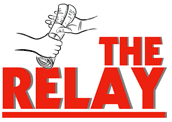July 30, 2015

Seven months after Boston beat out three other US cities in its quest to host the Olympic Games, things ended abruptly on Monday–a frenzied morning press conference, a couple hours of waiting until, unceremoniously, a joint press release cut the cord and let us go.
I’ve been in the thick of this process for over a year now–my first story about Widett Circle came out on July 31. It was a story about a proposed trash transfer facility encroaching on New Boston Food Market. It’s amazing that 12 months later, we were talking about a temporary stadium and a whole new neighborhood. No matter how similar you may have found the stadium plan to the dump proposal, you have to admit, that transformation is remarkable.
When news broke that Boston had won the Olympic bid in January, I was shocked. They could actually do this. After multiple visits to Widett Circle and time spent in the area since I live nearby, all I could think about were the soaring camera shots of the new stadium, angles panning up from the opening ceremony as the sun went down, a blazing sunset illuminating Boston’s skyline–broadcast for the entire world to see. Maybe throw some fireworks in there, too. Man, I hope Bill lets me cover this in nine years.
Since then, covering the Games has been a series of surprises. From finding that funding for transportation infrastructure improvements promised by the Games was never in the pipeline to securing an ethics disclosure from Mayor Walsh’s Chief of Staff Dan Koh about his 2024-employed girlfriend (now fiancee). Not to mention confirming the master developer plan weeks before Bid 2.0 was rolled out.
Bid 1.0, the blessing that won over the USOC and turned out to be organizers’ curse, had so many significant holes that we at the Reporter were in a unique position to cover. Plans were a surprise for existing landowners on Columbia Point and Widett Circle. Questionable funding to fix White Stadium. The ongoing battle for the fate of Franklin Park. And despite organizers’ assurances that the holes would be filled, Bid 2.0 just simply did not do enough to win over the public. Unredacted bid 1.0, uploaded at the mayor’s urging and the threat of a subpoena from members of the City Council, was just so damning.
Really, the Boston bid died a death of a thousand papercuts--You’d be hard-pressed to point to one specific thing that felled this proposal (though specific missteps mattered more than others), and I think ultimately the poll numbers reflected that. Poll numbers dropped and plateaued and then dropped again and never really did recover. Arguably they were never given a chance to recover. But in the end, the pitch just wasn’t right, and people couldn’t get on board.
You could say that’s because the public was never asked whether they want this in the first place. Boston isn’t a city that takes lightly to big interests imposing their will on its residents--this time, an Olympic torch was chucked into the Harbor instead of tea.
And those community meetings. Oh, those community meetings. Whether you felt they were beneficial or not, one thing was certain. Those meetings dredged up the types of conversations that are rarely discussed in one (large) room. All of the issues facing the city, trawled up and often aimed straight for the city’s Olympics liaison John FitzGerald, who truly served his city by running those meetings. Questions about gentrification, education, transportation, housing, opportunity–all crucial issues tied to Boston’s future and arguably the first time anyone has ever tried to sit residents down in a room and begin to pick apart some of the issues. That’s not to say that it worked to approach the topics en masse, but significantly, the city-wide forum was there.
Activism on social media can’t be discounted either. Whether it was the use of hashtags, Twitter accounts, grassroots funding for FOIA requests, or just spreading the word, those who were tuned in to the #Boston2024 Olympics discussion on Twitter saw just how fierce (and, at times, vitriolic) the opposition could be. (Not that supporters were innocent, either)
Many questions remain. More will certainly be answered by myself and others in the days and weeks to come as hindsight becomes 20/20 for Boston 2024.
This story has been a wild ride, a blast to cover, and bittersweet end. Here’s to hoping Boston’s 2026 winter games work out better.
Thanks for reading.
-Lauren Dezenski
Tags:


